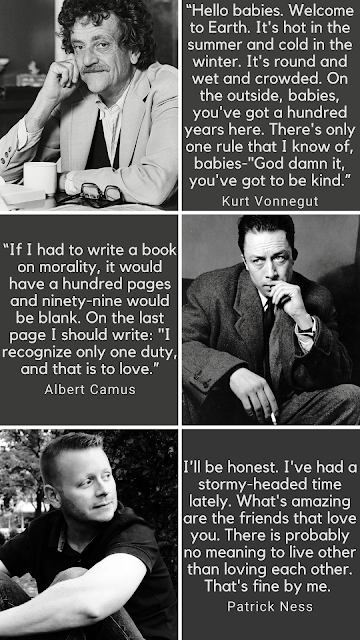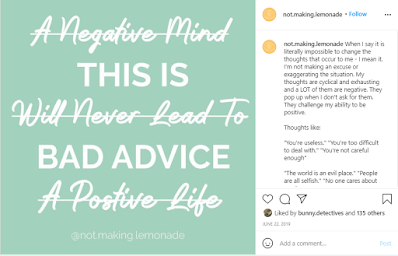Reflection on Phase 2
In this phase of LIBE 477, I’ve investigated some spurious advice for promoting student readership, reviewed the process I use for self-directed professional development, and explored some non-traditional libraries and information resources. I did not complete the blog about supporting other teachers’ information/communication technology learning, but I did spend some time reading what my classmates had to say on the topic.
Post 1.
I was particularly proud of my post about all the bad advice that parents & non-teachers give about fostering a culture of reading. I had a lot of fun writing it. In searching online for relevant, professional advice on how to make students read more, I kept coming up against posts, blogs, and articles about all the things that teachers are doing wrong—either by non-teachers, Pinterest Homeschool Mommies, and even actual teachers. In the end, I realized that a trained and experienced teacher would have to filter all this advice through their knowledge of the current educational culture of their school/community crossed with their own professional expertise.
I was really challenged by the comments on this post. Andrea Koehn’s comment reminded me that good ideas can come from anywhere (even non-professionals). Mrs. Passaglia reminded me (kindly) that although I had identified a raft of problems, I hadn’t suggested any solutions. Sarah M. made some suggestions on how to make reading physically comfortable for kids, which was an aspect that I hadn’t even considered. Reading can actually be very physically uncomfortable, especially for a child—the chair isn’t the right size for your body, the book is big, heavy, floppy, or otherwise cumbersome… Even as an adult, as someone who spends at least three hours a day reading, it’s a shockingly un-ergonomic activity. If I lay on my back, my neck gets sore. On my side—my arms fall asleep. Sitting in a chair, my legs dangle. Cross-legged, my legs fall asleep. Even with an e-reader, the devices aren’t built to female hand-size, so I have to use both hands or stretch my fingers to grip or turn the page. So, the physical aspect of the act of reading is something I would like to explore some more.
Post 2.
In writing my post about how “I don’t do anything for Pro-D,” I discovered that I actually do have some self-direction and motivation and structure for my professional development. In this same post, I realized that for all my hatred of Twitter as a networking/self-education tool, I basically use Instagram in the same way that others use Tweets. The main difference is that I use Instagram in a passive manner, and I never get involved in commenting. Most of the accounts that support my own development on Instagram are presented in short, bite-sized comments or aphorisms, just like on Twitter (several even simply post screengrabs of tumblr or Twitter posts). The main difference is that, where I think Twitter can be very “noisy,” the IG accounts tend to curate the best of the best posts. I wouldn’t know where to find that on twitter.
The comments section on this post was really uplifting. I hadn’t meant to garner sympathy, but it was welcome. Someone else acknowledging my struggle is both uncomfortable and relieving. There was also some talk about bullet-journaling in response to the description of my pro-d notebook. I got the idea from another teacher, someone who I sat next to once at a large conference, who showed me her leather-bound diary that she’d been using for over 20 years. I’ve only been using my 100-page spiral for five years, so I haven’t filled it up yet. If I were keeping all my handouts and other papers in there, though, it would be very fat, as Lacey Mohun-Smith imagined. All those papers from all the conferences and such that I’ve been to are bursting out of a folder in my file cabinet.
Post 3.
I was a little too excited to talk about this Amazonian solar-powered self-directed learning that I didn’t even realize I’d skipped a blog topic and did this one early (and due to health & work problems was unable to go back and complete the other one). I still wish that I could find that article, though. I just love the idea of leapfrogging over the industrial age to the information age.
I have strong feelings about the damage that capitalism, colonialism, and industry have wreaked on our lives in the “First World”. Even using that term makes me ill. But what if our pain can power someone else’s pleasure? What if, even if we can’t learn from our mistakes, someone else could?
As a woman who has never liked children, a lot of people wonder why I’m a teacher. First, I tell them, I teach young adults—NOT children. Once, I subbed in a K-1 class for 2 days and cried at the end of each and took the rest of the week off. Small children, and the responsibility to teach basics like reading and counting, are not for me. Second is my real reason: because I cannot think of anything so selfish as to be the only one who learns from my mistakes. A person’s life is so short, why should we all spend ours making the same mistakes over and over again?
As a nihilist/absurdist, I recognize that life has no inherent meaning, that all consciousness involves suffering, and that the only meaning that makes sense to me is to lessen others’ suffering. This idea forms the bedrock of all my decisions and behaviour, whether I’m interacting with colleagues, students, family, friends, or others. (That is why I’m also a leftist. No person has ever asked to be born, so making them pay to live is cruel. The needs that keep people alive, healthy, and unhurt should all be available and accessible to everyone.)
I’m going a little off-topic here, but this one idea undergirds everything I do and believe, and it is there, in the background behind my aspirations and goals, and all my other posts. And because I believe that enriching human wisdom will alleviate suffering, I get really excited when I read about other cultures who are sharing their knowledge and adapting ours to use only the very best aspects of it. An indigenous culture that is NOT being exterminated is very rare, and a nation that has agency and self-determination should be celebrated. (For example, only two depictions of uncolonized modern African nations have made their way into our popular culture—Zamunda and Wakanda, from the movies Coming to America and Black Panther.) It should be respected if an uncontacted nation wishes to remain isolated or return to isolation, but it is cause for celebration if a culture wants to share their traditional knowledge.


Well written and authentic reflection on your key learning, important reminders and centering philosophies that ground and support your pedagogy and approaches to life. Your highlights and showcases of new learning, especially the comments and suggestions from your small group of peers was enlightening and inspriring. It is our communities that sustain us, and you explored this topic very well throughout your reflection. I appreciated the honest, open and raw nature of your post that dug a little deeper into our core rationale, purpose and humanistic goals.
ReplyDeleteThat was a deep post, thank your for sharing your thoughts with us. I've always enjoyed your writing style, and posts. While I think it is important to associate comfort, and positive connotations with reading, I've never thought much more deeply about the physical act of reading until you mentioned it in your post. This is something I would also be interested in learning more about as well.
ReplyDeleteI really enjoyed your philosophies at the end about the importance of kindness (I'd also never heard of nihilist/absurdist, before, and it was interesting to learn about), and helping people avoid our mistakes. I feel pained by your "First World" comparison because it is unfortunately accurate. I also laughed at your day teaching K-1. While I prefer a middle school age, I think all Kindergarten teachers are saints as it is a job I know I could not do as well.
Here are some depictions of Nihilism and Absurdism, in case you’re interested. The bottom line is that, in both philosophies, there is no inherent meaning of life. The Absurdists response is to embrace meaninglessness.
Delete(Sorry but I didn’t know how to embed images in comments)
https://www.instagram.com/p/CMbUOvmlygu/?igshid=1w126ullt1z68
https://www.instagram.com/p/CI4K9sQlFk0/?igshid=1veu9ppd5z7e3